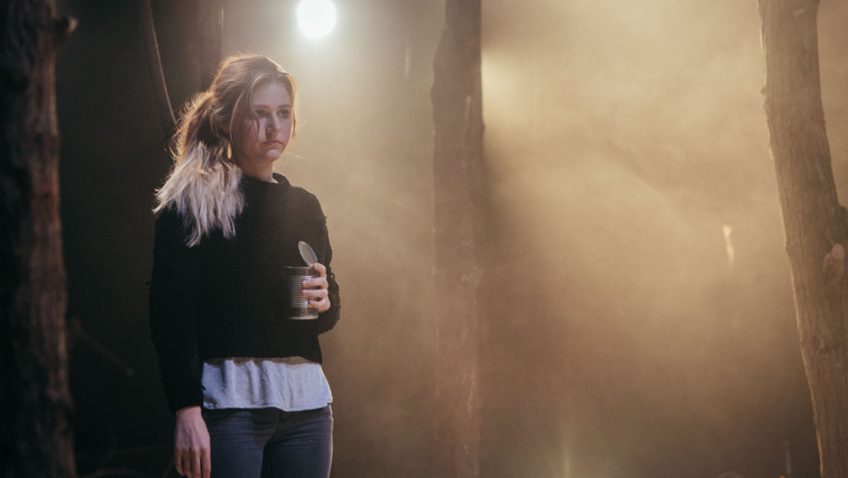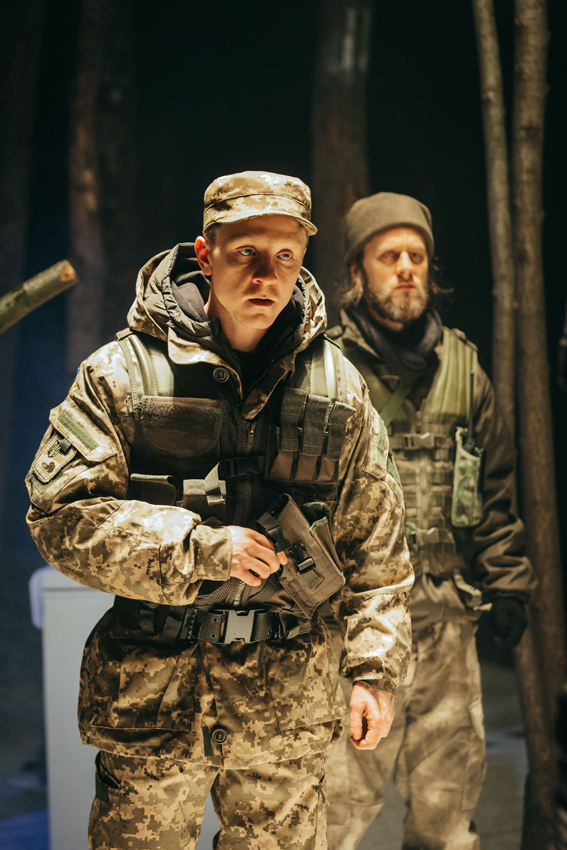Robert Tanitch reviews Bad Roads at Royal Court Theatre Upstairs, London SW1
Natal’ya Vorozhbit is described as the leading Ukrainian playwright of her generation.
The war in Ukraine has brutalised soldiers and civilians alike.
It is said that the reason Cossacks have so many songs about death is because they are rehearsing their own death in life so that they aren’t afraid when it comes.
Bad Roads, translated by Sasha Dugdale and directed by Vicky Featherstone, is a series of war scenes and opens with a very long monologue.
A woman (Kate Dickie) walks on to a thrust stage full of birch trees and announces she is Natasha and 40 years old and that she fell in love with a soldier, Sergei, who is 39 when she interviewed him in Kiev.
Natasha is researching the war and Sergei is able to give her a first-hand account. She watches a newsreel and is shown pictures of civilians’ bodies being ripped to pieces. He offers to take her to the front line. She is thrilled. She wants to have sex with him.
The monologue is so long that many in the audience, who had bought the text, were opening it to see just how much longer she would be talking. It seemed as if she could go on forever.
The next scene has two teenage girls talking about the sex they are having with the soldiers.
Things improve in the third scene when a headmaster (Vincent Ebrahim), who has mislaid his passport, is being interrogated by two soldiers (Mike Noble and Tadhg Murphy). He pleads with them not to have sex with schoolgirls.
One sex scene is acted totally in the dark. The audience sees and hears nothing.
 A soldier (Tadhg Murphy) boasts he is psycho, a sadist, a pervert, an oddball and tells a teenager (Ria Zmitrowicz) that he wants to rape her. She tells him she still loves him.
A soldier (Tadhg Murphy) boasts he is psycho, a sadist, a pervert, an oddball and tells a teenager (Ria Zmitrowicz) that he wants to rape her. She tells him she still loves him.
The play ends on a light pre-war note with a young woman wanting to pay for the chicken she killed whilst driving her car. The comedy comes from the escalating amount of money the owners of the chicken expect her to pay.
To learn more about Robert Tanitch and his reviews, click here to go to his website





